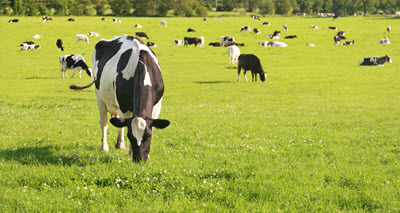
The World Trade Organization wants to eliminate ag export subsidies
By Jim Algie
Better Farming
Just when you thought all the trade talk had ended, along comes the World Trade Organization’s (WTO) decision to revive long-stalled talks about agriculture.
Late last year, Roberto Azevêdo, the Brazilian diplomat and WTO director-general, led a push to reform and improve the efficiency of WTO systems, a December 2018 edition of Geneva Watch said. Marketing boards operating under Canada’s supply management system for dairy and poultry products publish this online newsletter.
Ambassador John Deep Ford of Guyana, chair of the WTO’s farm trade talks, will lead meetings about domestic supports, market access and export competition.
In January, new working groups were scheduled to begin monthly meetings for a trial period designed to “advance negotiations” on ag export subsidies. In 2015, WTO members adopted what they called the Nairobi Decision on export competition, a commitment to eliminate such subsidies.
WTO interest in talks about agriculture resurfaced after years of indecision by the international body. More recently, U.S. President Donald Trump has shown direct hostility to the idea, declining to appoint judges for crucial appeals tribunals.
Seen from a Canadian perspective, this renewed interest follows three recently completed trade agreements that are separate from the WTO’s deliberations.
Canada’s new deal with Europe and pending agreements with North American and Pacific nations lower barriers to trade in a variety of ag commodities, including Canada’s supply-managed dairy and poultry products.
The WTO’s stance is a new wrinkle in an already rumpled world trade outlook, said Al Mussell, research lead and founder of Guelph-based Agri-Food Economic Systems. He advises clients on agriculture-related policy matters.
Together with Douglas Hedley, a former Agriculture and Agri-food Canada assistant deputy minister of the program branch, and Ted Bilyea, a former Maple Leaf Foods executive vice-president, Mussell describes 2018 as “the year that roiled the protein complex.” Trump’s trade war with China and the resulting retaliatory tariffs have contributed to a year that was “remarkable in its disruptive trade policy effects,” the trio said in an early December paper.

R-J-Seymour/iStock/Getty Images Plus photo
In a recent Better Farming interview, Mussell also highlights the WTO’s Nairobi Decision as “a big deal” for Canada.
If implemented, the policy could further complicate Canadian skim milk exports which are already threatened by the terms of the United States-Mexico-Canada Agreement. This trade deal calls for an end to Canada’s controversial Class 7 milk category for processing.
According to WTO policy, Canadian dairy exports are already deemed subsidized and are subject to export caps, Mussell said.
“If you really had no Class 7, or no class from which you could declare (the product) not subsidized, that would be very limiting and, I would argue, quite problematic,” he said. “As a practical matter, trying to operate a supply management system in which you have literally no exports is very difficult.”
Whether the situation will arise remains to be seen. WTO talks on agriculture have been essentially stalled since the WTO launched a set of agricultural reform talks in 2001.
Recent U.S. hostility toward the inter-governmental WTO and a growing backlog of appeals under its rules bring further complications. Mussell declined to speculate about current attempts to revive the WTO’s relevance in the face of what he described as “a general decline in multilateralism.” He cited the examples of Brexit and U.S. tariffs.
“There’s this populist approach that’s gaining popularity in the U.S. and in some countries in Europe. People see sovereignty in (their) countries being diminished,” he said.
“I don’t think that’s an accurate depiction of what’s happening. ... Moreover, in countries like Canada and the United States, we’re not victims of a rules-based world trading system. We’re completely beneficiaries.”
In some ways, the current trade environment for dairy supports an argument for Canadian systems that closely limit production to meet domestic requirements, Mussell said.
“People need to be reminded. Look at the situations in the United States, … western Europe and New Zealand,” he said.
“There are some areas in the eastern U.S. where the dairy industry is just collapsing … under the weight of excess supply. They’ve got no clear way out of (the situation), other than people and families just leaving the industry. It’s just a wrenching process.” BF



Post new comment